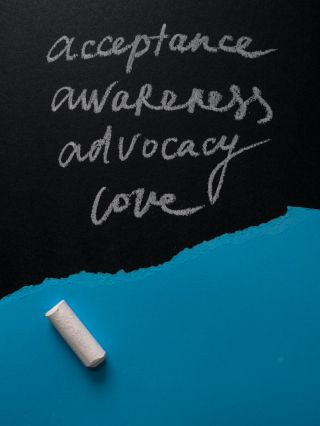Leadership
How to Be an Ally Amid Geopolitical Conflict
In times of strife, allyship can be hard to get right. Here's why it's crucial to try anyway.
Updated November 28, 2023 Reviewed by Devon Frye
Key points
- The Muslim, Jewish, and Arabic communities are experiencing outbreaks of violence.
- Micro and macro level allyship, community support, unity, and commitment to peace are essential.
- Allyship is consistent, imperfect, active behavior, free of passivity and performative gestures.
- Allyship is hard work that leads to growth, vital reflection, and true culture change.

This post was written by Erica Marshall-Lee, PhD, ABPP, on behalf of the Atlanta Behavioral Health Advocates
Let’s face it—I am an African-descended woman who is no stranger to discrimination, oppression, prejudice, disenfranchisement, and violence exacted against my ancestors. One would think I would be the perfect ally—or at least a reasonable one, who could empathize and support others with similar experiences due to race, sexual diversity, gender, religion, disability, etc.
Yet recently, I've discovered I was woefully incorrect in my assumption. Don’t get me wrong: I realize that I have had and continue to have blind spots requiring education and continued work, but I was completely off pertaining to current geopolitical circumstances.
I have been fortunate to find myself in leadership positions and as such felt the need to address the occurrences in Gaza and Israel. From my perspective, this acknowledgment was not only necessary, as silence speaks volumes, but also required of my role as a leader. Yet as I observed a pattern of contentious and extremely unkind exchanges, what became clear was this is an extremely dynamic situation and not at all straightforward. I was called out for lacking moral clarity, for being hypocritical, and for being inconsiderate of diverse perspectives.
As one who prides herself as a champion of social justice advocacy and equity, diversity, and inclusion, you can imagine what a blow this was to my identity. My intentions were to encourage individuals in these spaces to display respect, compassion, and consideration of one another as humans. What resulted was a landscape of landmines I found myself poorly navigating.
The outcome was so unexpected that it left me reeling and doubting myself, my leadership roles, and my desire to do the work. My self-care tanked and my support networks suffered as I wanted to disengage from everyone. Emails, texts, and listserv posts proved triggering and resulted in hypervigilance, preparing for the next strike.
Historically, the Muslim, Jewish, and Arabic communities, along with other residents of Israel and Gaza, have been exposed to centuries of episodic outbreaks of violence stemming from social, political, and physical turmoil. My lack of detailed knowledge about this history resulted in a backlash.
Currently, Israeli officials indicate that 1,400 Israelis have been killed and over 5,400 injured. Palestinian officials report that 8,500 Palestinians have been killed in Gaza and more than 21,000 injured following the violence of the October 7 Hamas terrorist attack (Singh, 2023).
For many Muslims in the U.S., memories of post-9/11 and its aftermath have been revived. For Jewish communities, memories of the Holocaust, in which 6 million Jewish people were murdered, and the rise in antisemitism that led to it, have been enacted.
The Anti-Defamation League (ADL) reported that following the Hamas attack on October 7, antisemitic incidents in the U.S. increased by 388 percent. The ADL indicated that between October 7 and 23, 190 out of 312 incidents occurred directly linked to the fighting in Israel and Gaza. There were 64 total incidents during the same time frame in 2022.
Similarly, the Council on American-Islamic Relations (CAIR) reported 774 complaints of Islamophobic incidents against Palestinians and Arabs from October 7 to 24. CAIR indicated this was the highest level since 2015 and almost triple the average for the same period in 2022. On a broader scale, the Federal Bureau of Investigation released data in October indicating that U.S. hate crimes are at the highest levels since 1991 when this data collection began. More than ever, this necessitates allyship, community unity and support, and a commitment to peace.
At this point, you might be thinking “Wait—you just told us how you monumentally failed as an ally; how are you going to talk about being a good one?” I don’t blame you; I prefaced this with my blunders to illustrate that even with the self-perceived best of intentions, impact lands differently for diverse individuals and it can be difficult to get it right, if at all.
That doesn’t mean we should give up. It means we should keep fighting to shift our culture toward mutual respect, appreciation of all voices, and acknowledgment of the rights of all humans. Allyship requires stepping out of comfort zones and displaying openness to imperfection. It demands a vulnerable, courageous, and humble approach that promotes difficult conversations and a willingness to be called out when mistakes are made.
Allyship is an ongoing journey of engaging in actions that create and cultivate supportive relationships and safer spaces with marginalized, discriminated, or underrepresented, individuals or groups in order to amplify voices and advocate agency. Allyship is consistent, imperfect, active, and free of passivity and performative gestures. Some helpful principles to guide psychologists in serving as allies to consumers, communities, and each other (Luthra, 2022; Dias & Hamill, 2023):
- Genuine curiosity through education about the impacted communities involved prior to contacting them for learning. This can be done via reputable resources (e.g. media; organizational websites, libraries, etc.). Be careful not to rely heavily on the community to educate you as they are likely already overburdened and tired.
- Honest self-reflection and introspection focused on personal bias and social identity, as well as power and privilege related to those identities. This step not only allows for humility but also serves as a window of awareness of positionality that can provide leverage when serving as an advocacy partner.
- Engage in empathetic, authentic, and vulnerable dialogue. This fosters psychological safety, builds connections, and can lead to sustained healthy relationships of mutual respect, enhanced trust, and collaboration.
Remaining in a place of “safety” by failing to engage in allyship increases the chance that we won’t get it wrong and perpetuates an environment no better than being indifferent. Despite being “dragged” often over the past month, I maintain now more than ever it is crucial to stay the course—not give up or give in to avoidance and disassociation. Do not succumb to becoming defensive, angry, or upset (though easier said than done), and acknowledge the experience as one that is not personal but offers an opportunity for growth and macro-level transformation. Allyship is challenging work that is part of a process leading to growth, vital reflection, and true culture change.
References
Ayer, L., Venkatesh, B., Stewart, R., Mandel, D., Stein, B., & Schoenbaum, M. (2017). Psychological Aspects of the Israeli-Palestinian Conflict: A Systematic Review. Trauma, violence & abuse, 18(3), 322–338. https://doi.org/10.1177/1524838015613774
Dias, J., & Hamill, J. (2023). What Is allyship? Your questions answered. Center for Creative Leadership. https://www.ccl.org/articles/leading-effectively-articles/what-is-allyship-your-questions-answered/
Luthra, P. (2022). 7 ways to practice active allyship. Harvard Business Review. https://hbr.org/2022/11/7-ways-to-practice-active-allyship
Morales Pinales, T. (2023). How reports of hate crimes in the US were already at record highs, in 4 charts. CNN.com. https://www.cnn.com/2023/10/29/us/hate-crimes-antisemitism-anti-muslim-dg/index.html
Singh, K. (2023). US antisemitic, Islamophobic incidents surge with war, advocates say. Reuters. https://www.reuters.com/world/us/us-antisemitic-islamophobic-incidents-surge-with-war-advocates-say-2023-10-25/
Venkatraman, S. & Alsharif, M. (2023). For Muslim Americans, a spike in hate incidents feels reminiscent of post 9/11 Islamophobia. NBC News. https://www.nbcnews.com/news/asian-america/muslim-americans-spike-hate-incidents-feels-reminiscent-post-911-islam-rcna122570




